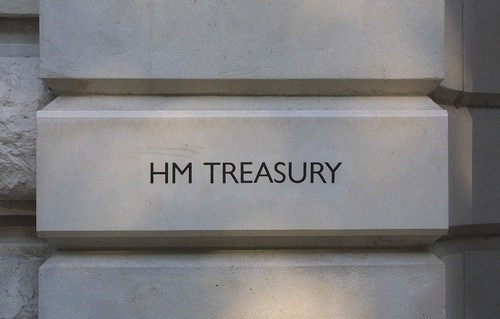
The Treasury is seeing rising IHT receipts
c receipts from April to October totalled £5.2 billion, £200m higher than the same period in 2024.
The latest figures from HMRC underline the seemingly inexorable rise in IHT 'take' for the government as more estates are caught in the net.
The figures point to a fourth consecutive record haul of £8.2 billion in the 2024/25 financial year with the tax predicted to generate £9.1 billion for the Treasury in 2025/26 and more than £14 billion in 2029/30, according to predictions from Just Group.
The latest figures are ahead of the planned extension of IHT to unused pensions from April 2027. Inheritance Tax is currently 40%.
Industry experts said IHT was already producing a windfall for the Treasury but many were concerned about more estates being caught by the death duties.
Stephen Lowe, director at retirement specialist Just Group, said: “Inheritance Tax remains a goldmine for the Treasury and looks set to offer the Chancellor another bumper year with takings driven by rising asset prices, frozen thresholds and a tightening of the exemption regime announced at the Autumn 2024 Budget.”
Ian Dyall, head of estate planning at wealth management firm Evelyn Partners, said: “The forthcoming inclusion of unspent pension assets in estate has caused many big savers to start withdrawing pension cash and either spending it, giving it away or finding alternative tax-efficient homes for it.
“This is especially the case with older people who fear – if they die after age 75 - that their beneficiaries might also pay income tax as they withdraw funds from the pension that might already have been taxed at death.”
Rachael Griffin, tax and Financial Planning expert at Quilter, said: “HMRC’s latest tax receipts offer a stark reminder of how much of the heavy lifting in the tax system is now being done quietly and without ministers having to announce a headline rise in taxes. This is the final snapshot of public finances before the Chancellor delivers the Budget next week.
“PAYE Income Tax and NICs receipts for April 2025 to October 2025 were £272.6bn, which is £28.1bn higher than the same period last year. This rise once again reflects the combined effects of frozen thresholds and strong nominal earnings feeding through the tax system.”
She added: “To add fuel to the fire, from 30 October 2024 the main rates of CGT on assets, other than residential property and carried interest, swung from 10% and 20% to 18% and 24% for basic and higher rate taxpayers respectively. Instinctively, these changes should have boosted CGT receipts, but today’s figures show the tax take has plummeted by nearly £1bn (£926m).
“This kind of drop underlines why a wealth tax is unlikely to be unveiled next week: more punitive measures can simply change behaviours rather than rake in more revenue.”
Nick Henshaw, head of intermediary distribution at Wesleyan Financial Services, said: “Clients will be worried that they’ll soon face an even higher risk of an IHT charge as the government looks at tax-raising measures in the Autumn Budget. It’s at times like these that advisers will really add value by helping clients balance their emotional concern with the big picture, and their long-term plans, in mind.”
Nicholas Hyett, investment manager at Wealth Club, said: “The “hokey-cokey” Budget is just days away, and recent IHT history provides the blueprint we expect the Chancellor to follow.
“IHT’s main nil-rate threshold has been frozen at £325,000 since 2009 (had it increased in line with inflation it would now be nearly £525,000). That can squeeze an extra £80,000 from an estate without the government having to “raise” taxes at all. The Chancellor is set to repeat the trick with various other tax allowances – including freezing income tax thresholds into next decade.
“There may be a final grab for more IHT revenues this time round, through attacks on gifting rules. The current seven year rule, after which gifts are free from IHT, could be extended or there could be a move to cap gifts out of surplus income (which are currently free from inheritance tax straight away).”